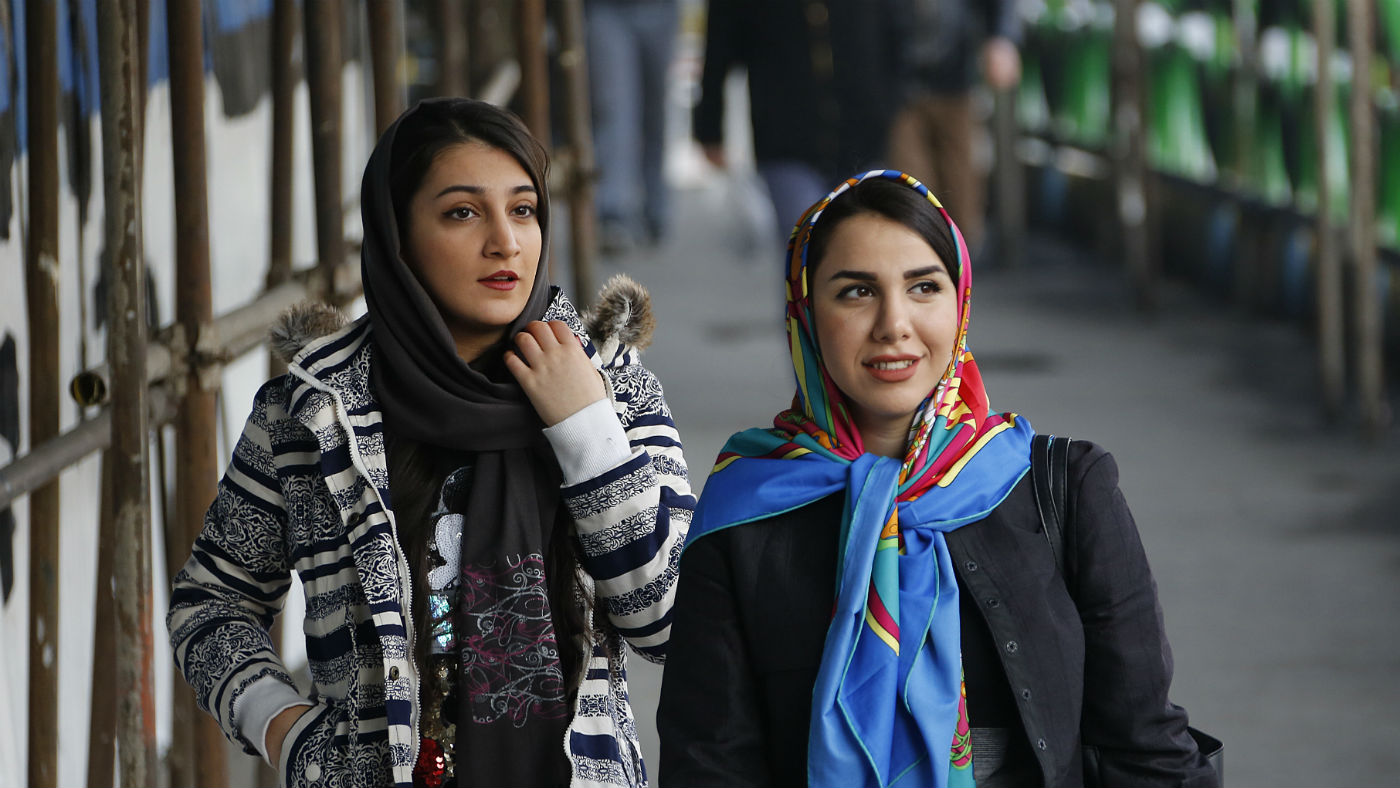Iranian woman ‘jailed for 20 years’ for removing headscarf
29 people were arrested in February for protesting against Iran’s strict Islamic dress code

A free daily email with the biggest news stories of the day – and the best features from TheWeek.com
You are now subscribed
Your newsletter sign-up was successful
An Iranian woman says she has been sentenced to 20 years in prison for taking off her headscarf in public during protests against the government.
Writing on her personal website, Shapark Shajarizadeh claimed that she had been jailed for “opposing the compulsory hijab” and “waving a white flag of peace in the street”.
There has as yet been no official comment from Iranian officials and a spokesperson for the Iranian embassy in London could not confirm the claim to The Independent.
The Week
Escape your echo chamber. Get the facts behind the news, plus analysis from multiple perspectives.

Sign up for The Week's Free Newsletters
From our morning news briefing to a weekly Good News Newsletter, get the best of The Week delivered directly to your inbox.
From our morning news briefing to a weekly Good News Newsletter, get the best of The Week delivered directly to your inbox.
Police arrested 29 women, including Shajarizadeh, in February for removing their headscarves as part of a campaign known as “White Wednesdays”, to protest against Iran’s strict Islamic dress code.
A wave of anti-government demonstrations that swept Iran in January was driven by concerns over rising living costs and a stagnant economy, “but also provided an opening for Iranian women to push for equal rights” says CNN.
It led to “Iran’s most robust debate about both women’s rights and religious restrictions in the four decades since the fall of the Shah”, The New Yorker reports.
Speaking to Amnesty International, Shajarizadeh’s lawyer, Nasrin Sotoudeh, claims she was subjected to torture and beatings after her arrest. She was released on bail in late April, but her current whereabouts were unknown, says Time.
A free daily email with the biggest news stories of the day – and the best features from TheWeek.com
At the time of the arrests, Iran's semi-official Tasnim News Agency reported that their actions were incited by foreigners, saying those arrested were “deceived” into removing their hijabs.
But Masih Alinejad, the Iranian activist behind the “White Wednesday” social media campaign against mandatory hijabs, who is now based in the US, told CNN that the movement has not been influenced from abroad.
“The movement started inside Iran. It has nothing to do with forces outside of Iran," Alinejad said. “This is a campaign that’s been going on for years and years. The women of Iran have long been ignored. We're just giving them a platform.”
The Conversation says the hijab “has an important place in the power dynamic between society and the ruling Iranian regime”. Women have been legally required to wear the hijab since the Islamic Revolution in 1979, and risk a fine or imprisonment if they remove it in public.
A newly released report by the Iranian government suggests that 49% of the population are against the country’s compulsory hijab law, although the real number is likely to be higher.
-
 The ‘ravenous’ demand for Cornish minerals
The ‘ravenous’ demand for Cornish mineralsUnder the Radar Growing need for critical minerals to power tech has intensified ‘appetite’ for lithium, which could be a ‘huge boon’ for local economy
-
 Why are election experts taking Trump’s midterm threats seriously?
Why are election experts taking Trump’s midterm threats seriously?IN THE SPOTLIGHT As the president muses about polling place deployments and a centralized electoral system aimed at one-party control, lawmakers are taking this administration at its word
-
 ‘Restaurateurs have become millionaires’
‘Restaurateurs have become millionaires’Instant Opinion Opinion, comment and editorials of the day
-
 Will increasing tensions with Iran boil over into war?
Will increasing tensions with Iran boil over into war?Today’s Big Question President Donald Trump has recently been threatening the country
-
 Epstein files topple law CEO, roil UK government
Epstein files topple law CEO, roil UK governmentSpeed Read Peter Mandelson, Britain’s former ambassador to the US, is caught up in the scandal
-
 Iran and US prepare to meet after skirmishes
Iran and US prepare to meet after skirmishesSpeed Read The incident comes amid heightened tensions in the Middle East
-
 Which way will Trump go on Iran?
Which way will Trump go on Iran?Today’s Big Question Diplomatic talks set to be held in Turkey on Friday, but failure to reach an agreement could have ‘terrible’ global ramifications
-
 Israel retrieves final hostage’s body from Gaza
Israel retrieves final hostage’s body from GazaSpeed Read The 24-year-old police officer was killed during the initial Hamas attack
-
 China’s Xi targets top general in growing purge
China’s Xi targets top general in growing purgeSpeed Read Zhang Youxia is being investigated over ‘grave violations’ of the law
-
 Panama and Canada are negotiating over a crucial copper mine
Panama and Canada are negotiating over a crucial copper mineIn the Spotlight Panama is set to make a final decision on the mine this summer
-
 Iran unleashes carnage on its own people
Iran unleashes carnage on its own peopleFeature Demonstrations began in late December as an economic protest